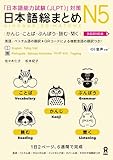説明 (Explanation)
文法(Grammar):た形+ことがあります (ta form+koto ga arimasu)
意味 (Meaning):過去の経験を話すときに使います。
英語(English):The expression 〜たことがあります (ta koto ga arimasu) is used to indicate that someone has experienced doing a certain action at least once in the past. It can be translated as “I have (done something)” or “I have the experience of (doing something).”
In English, you might say, “I haven’t eaten my lunch,” but with this grammar structure, you can only talk about the experience of doing something. So, 〜たことがあります (~ta koto ga arimasu) cannot be used to say you haven’t done a particular action today; it is solely for discussing past experiences.
例文 (Examples)
- 日本に行ったことがあります。
- 旅館に泊まったことがあります。
- 寿司を食べたことがあります。
- スキーをしたことがありますか。
- カラオケをしたことがありますか。
ひらなが (Hiragana)
- にほんにいったことがあります。
- りょかんにとまったことがあります。
- すしをたべたことがあります。
- スキーをしたことがありますか。
- カラオケをしたことがありますか。
Romaji
- nihon ni itta koto ga arimasu.
- ryokan ni tomatta koto ga arimasu.
- sushi o tabeta koto ga arimasu.
- sukii o shita koto ga arimasuka.
- karaoke o shita koto ga arimasuka.
英語翻訳 (English Translation)
- I have been to Japan.
- I have stayed at a ryokan (Japanese inn).
- I have eaten sushi.
- Have you gone skiing?
- Have you done karaoke?
JLPT Textbook Recommendations
created by Rinker
¥1,408
(2026/01/23 13:05:21時点 Amazon調べ-詳細)





コメント